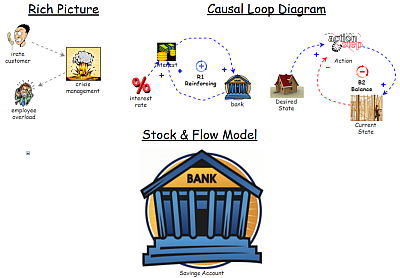20 Minute Abs Workout with Warm-Up | Sweat With Self | SELF
Web of wonder: Three types of models [Systems thinking & modelling series]
Rich Pictures, Causal Loop Diagrams, and Stock & Flow Simulation Models.
This is part 6 of a series of articles featuring the book Beyond Connecting the Dots, Modeling for Meaningful Results.
In previous articles you interacted with two different kinds of models in all the simulation models you ran: qualitative models (no numbers – “Follow the Clues” and “Bird Feeder Dilemma”) and quantitative models (with numbers). In the “Three Types of Models” interactive learning environment (ILE) we’ll present two types of qualitative models: Rich Pictures and Causal Loop Diagrams. We will also provide more detail about quantitative Stock & Flow Simulation Models.
Though there are different types of models each may contribute to understanding is a particular way.
Need help? See the Model instructions
The type of model you develop depends on what you’re trying to understand and how you intend to use the model after you develop it. At times you may even use multiple types of models. You may use a rich picture to get an initial sense of the interactions, then develop a simulation model, and finally use a causal loop diagram to present to others the insights identified.
It’s of critical importance to consider the intent and your audience when you set out to create a model. That’s not to say the intent may not change along the way. The development of models should be considered, above all else, as a learning process.
Next edition: Web of wonder: Developing models.
Article sources: Beyond Connecting the Dots, Insight Maker. Reproduced by permission.
Header image source: Beyond Connecting the Dots.

